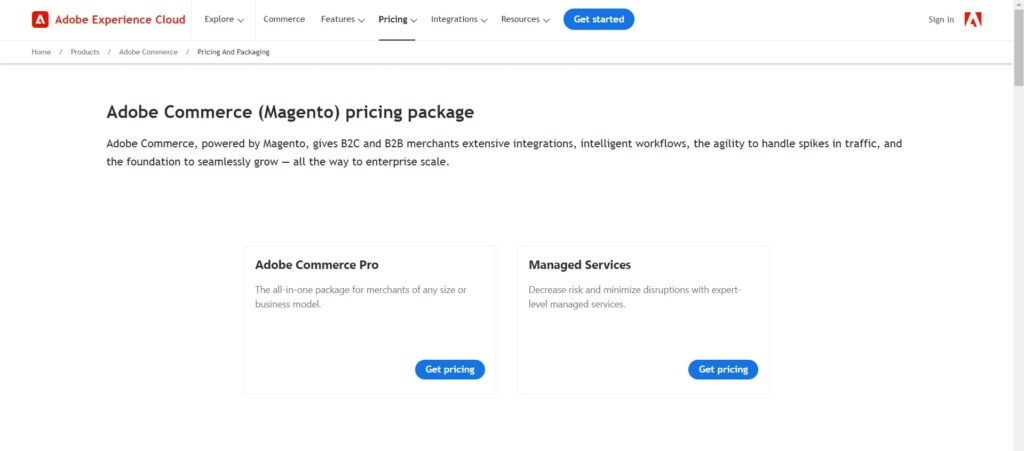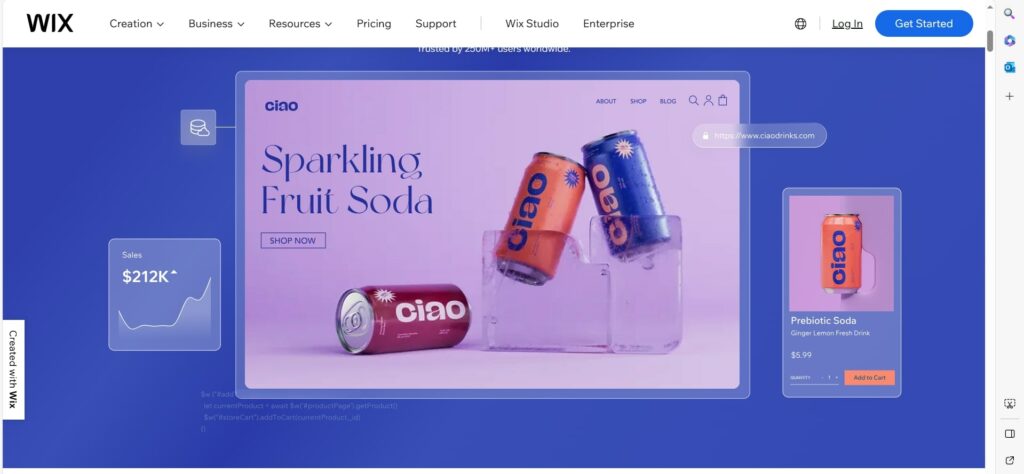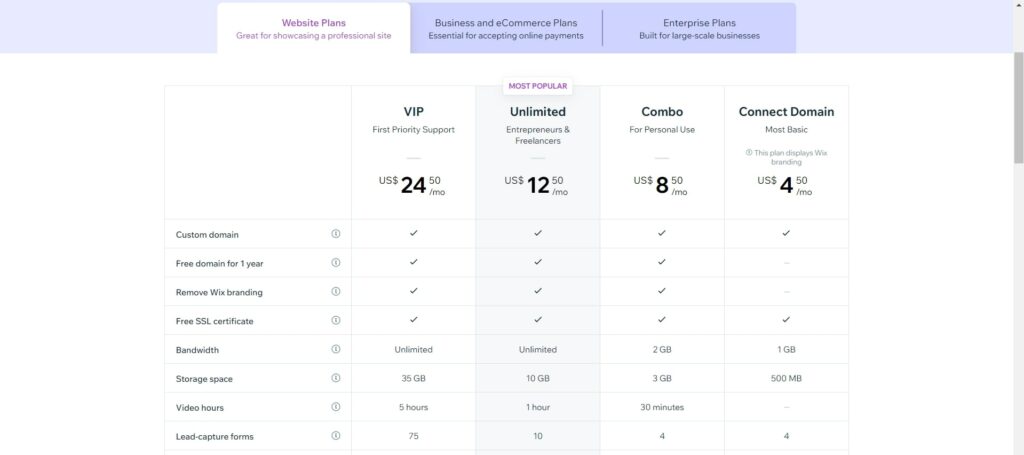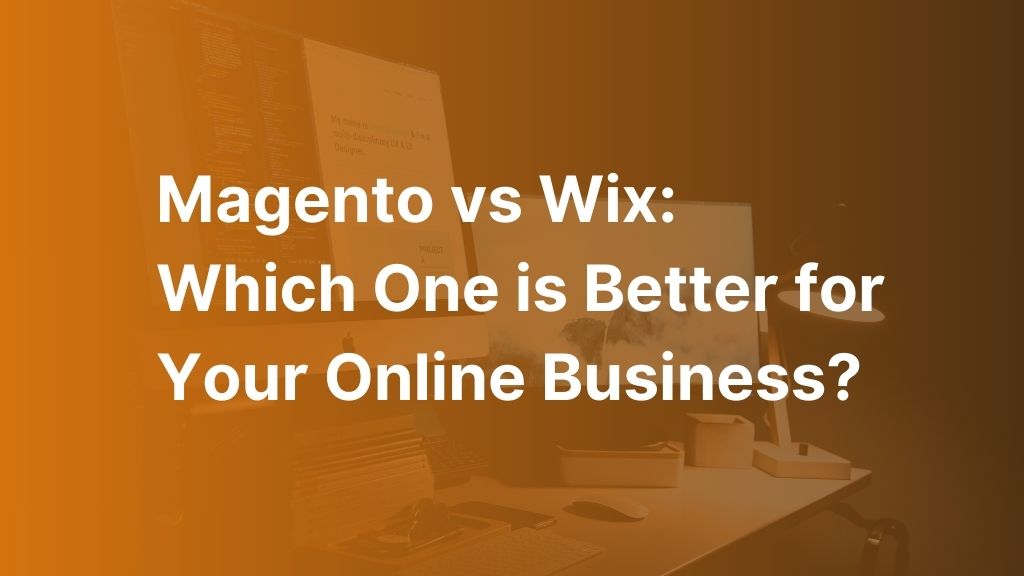In recent years, the eCommerce industry has experienced rapid growth in order to meet the ever-changing demands of modern consumers. The decision to choose a suitable and reliable platform is so crucial that both Wix vs Magento are leading options worth considering. Both of these platforms are renowned for their exceptional customization features. Therefore, determining which one will emerge as the leader requires a thorough comparison of Magento vs Wix.
In the article below, the BSS Commerce blog will explain in detail all the functions of each platform and which is best for you, as well as the pros and cons of how these platforms can help you develop better in the eCommerce field.
Magento vs Wix: At a Glance
Table of Contents
Introduction to Magento
Before diving into a detailed comparison of Magento vs Wix, it’s essential to understand what each platform offers. Let’s start with a question: What is Magento eCommerce?
Magento is widely recognized as one of the most prevalent eCommerce solutions, catering to a variety of business models ranging from small businesses to large enterprises. As the first major open-source platform for commerce, Magento offers users unprecedented flexibility and scalability, enabling them to enter the market in a unique and differentiated manner.

In 2018, Magento was acquired by Adobe, a leading multimedia software company. This acquisition has further enhanced the potency of Magento, or more precisely, the Adobe Commerce Cloud, a product of Magento.
Written in PHP, Magento encourages web developers to unleash their creativity when crafting unique websites. However, it’s important to note that a basic level of technical knowledge is required to install, craft, and maintain a Magento-based website to ensure that the platform maintains a high standard of quality.
Who Should Use the Magento Platform?
Magento is a comprehensive eCommerce solution that is highly regarded for its extensive range of features. This makes it an excellent choice for:
- Large businesses that require a robust system capable of handling complex product types and multiple storefronts
- Businesses looking to expand, resulting in an increase in their product database, network traffic, and the need for multiple currencies
- Those who solely require an eCommerce platform due to its complexity and steep learning curve. However, for basic needs, Wix is a more suitable option
- Individuals or businesses that already have an in-house web development team or an agency to assist in launching and customizing their website from scratch
Pros and Cons
Pros
- High flexibility and customization: Magento is an open-source platform, that allows users to modify the code, customize templates, and adjust features to meet their business requirements. It can be tailored to any retail business.
- Feature-rich: Magento offers a wide range of features, including the ability to manage multiple stores, and support multiple locations, languages, pricing, and currencies. It also allows third-party integration for various purposes.
- Large user community: Magento has a large community of users, ensuring quick support and countless resources to solve problems.
- Mobile friendly: Magento is mobile friendly, allowing users to create a mobile site without difficulty.
Cons
- Technical knowledge required: Magento demands a lot of technical resources and time. It’s more suitable for advanced developers.
- Cost: While Magento Open Source is technically free, you’ll likely end up paying for site development. The paid version, Adobe Commerce Pro, offers more advanced features but its cost isn’t publicly listed and is based on your gross merchandise value and average order value.
- Hosting required: Unlike some platforms, Magento requires hosting, which is an additional cost
Introduction to Wix
In contrast to Magento, Wix has gained significant recognition over the past few years as it caters to users of all levels, from non-tech-savvy merchants to skilled web developers. Wix primarily targets small and mid-sized eCommerce businesses, offering them highly intuitive interfaces. It is known as one of the most user-friendly platforms for web development and customization.

Wix comes with a range of features and tools. Its core value lies in its dynamic drag-and-drop tools, which simplify the web development process for users of all levels. This feature allows even those with minimal technical knowledge to create professional-looking websites.
Who Should Use the Wix Platform?
Wix offers a comprehensive solution for web development with its wide range of web layouts and practical implementations. Wix is particularly suitable for:
- Non-coders looking to start an eCommerce project
- Individuals who prefer an affordable web builder platform over an eCommerce specialized solution
- Small to midsize online businesses
- Wix is an excellent choice for those seeking a comprehensive solution with a high degree of design freedom, whether it be for building a blog, prompt sites, portfolios, and more
If you still wonder what is better than Wix and Magento, let’s explore this post: Top 10+ Magento Alternatives You Need to Know
Pros and Cons
Pros
- User-friendly interface: Wix is renowned for its intuitive drag-and-drop interface, enabling users to effortlessly design a website without any coding knowledge.
- SEO and app integration: Wix offers built-in SEO tools and supports over 200 app integrations, empowering users to optimize their website’s visibility and enhance its functionality.
- Free trial: Wix provides a 14-day free trial on premium plans and a completely free plan to help users get started.
- Extensive template collection: With over 800 design templates, Wix offers a wide range of options for users to personalize their websites according to their specific requirements.
Cons
- Template change limitation: Once your website is live, you are unable to change the template. It is crucial to carefully select your template before publishing to avoid any inconvenience.
- Storage restrictions: Except for the Business Elite and Enterprise Tier, all Wix plans have storage limits. It is important to consider your storage needs when choosing a plan.
After clearly understanding the definition, target audience, and pros and cons of each platform, Please scroll down to learn more about the detailed analysis between Wix vs Magento in the section below.
Magento vs Wix: Detailed Analysis of Each Platform
Pricing
Magento Pricing Package
Magento, now rebranded as Adobe Commerce, provides a user-friendly page builder that allows for easy customization through drag-and-drop functionality. It also offers AI-powered product recommendations, efficient inventory management, and comprehensive reporting capabilities. To obtain a pricing quote, it is necessary to directly contact the company. Magento offers two primary plans: Adobe Commerce Pro and Managed Services.
- Adobe Commerce Pro is a comprehensive package suitable for businesses of all sizes. It grants users the ability to personalize their websites and gain access to the Adobe Commerce Application, along with security features and cloud infrastructure.
- Managed Services is a cloud-based technology service that offers access to specialized expert resources, including Advanced Support Engineers and Customer Success Engineers. These additional services empower companies to effectively handle escalated incidents and benefit from premium technical support, ultimately enhancing the overall customer experience.
>>> You may want to know the comparison between Magento Open Source vs Commerce
Wix Pricing Plans
Wix provides customers with a range of plan options to suit their needs, including Basic Website Plans, Business and ECommerce Plans, and Enterprise Plans:
Wix Basic Website Plans
Wix provides a 14-day free trial on premium plans and a completely free plan to help users get started. However, if you desire a more professional website with enhanced customization options and additional features, you will need to opt for a paid plan. Wix offers four basic website plans, ranging from $4 to $24.5 per month. Each plan includes a free custom domain for one year and a free SSL certificate.

- Monthly cost for Most Basic Plan (Connect Domain) is $4.5
- Monthly cost for Personal Use Plan (Combo) is $8.5
- Monthly cost for Entrepreneurs & Freelancers (Unlimited Plan) is $12.5
- Monthly cost for VIP Plan is $24.5
Wix Business and eCommerce Plans
To enable online payments and generate revenue from your website, you must select one of Wix’s business and eCommerce plans. You have three alternatives to consider, all of which provide secure online payment processing, recurring payment capabilities, customer account management, and a complimentary custom domain for the first year.
- Monthly cost for Business Basic is $17
- Monthly cost for Business Unlimited is $25
- Monthly cost for Business VIP is $35
In addition, the three plans offer a range of features including the ability to sell on social channels, recover abandoned carts, and manage up to 50,000 products.
Wix Enterprise Plans
Pricing enterprise solutions for large websites is custom. These plans are bespoke, and you will need to engage directly with a Wix representative to build a plan for your business needs.
The Final Verdict: When comparing pricing between Magento vs Wix. Wix has become a platform that is more beneficial because it provides clear pricing. In contrast, Magento doesn’t have specific pricing, and you need to contact the company directly to receive pricing based on the size and target of your business.
Friendly Interface
Magento
At Magento (Adobe Commerce), the admin dashboard provides merchants with the ability to configure products, carry out administrative tasks, and manage sales. Similar to Wix, the primary dashboard is well-structured, tidy, and user-friendly. Nevertheless, due to its advanced functionalities tailored for enterprise-level operations, users may have to dedicate time and effort to familiarize themselves with the platform’s workflows and configuration settings.
For any technical assistance required, users can easily open a support ticket, check the status of existing tickets, and get in touch with the support team. The Adobe Commerce Help Center offers a comprehensive range of resources, including user guides, support tools, forums, and documentation to support users.
Wix
Wix is a user-friendly platform that is designed to be intuitive and easy to navigate, making it accessible to users with no prior experience in website building. The drag-and-drop editor offered by Wix is highly user-friendly; with this editor, you can effortlessly add, delete, and rearrange elements on your page without the need to have any knowledge of coding.
In addition, Wix takes care of all the technical aspects, such as website hosting and security, allowing you to focus solely on creating your website. In case you encounter any difficulties, Wix provides 24/7 support for all paid plans, ensuring that you receive assistance whenever you need it.
The Final Verdict: Wix is more beneficial because it doesn’t require coding skills and is also friendly and easy to use for beginners. Magento is an ideal option for larger businesses that want to build a professional website.
SEO Feature
Magento
Search engine optimization (SEO) involves refining the content and layout of a website to enhance its ranking by search engines. Magento encompasses multiple functionalities that aid in the continuous improvement of SEO, including:
- Keyword Search: Adobe Commerce uses keywords that customers use to search
- Site Architecture: Research is done on the keywords
- SEO (Technical): Ensures that SEO crawls the site
- SEO on Page: Meta tags and content are used to attract customers
- Analytics: Analytics tools, such as Google Analytics, are utilized to track the performance of SEO efforts
- Meta Data: Adobe Commerce allows you to add and enhance keyword-rich metadata for your site and store
- Sitemap: A sitemap improves the way that your store is indexed by search engines
- URL Rewrites: The URL Rewrite tool enables users to modify any URL associated with a product, category, or CMS page
- Search Engine Robots: Adobe Commerce includes settings to generate and manage instructions for web crawlers and bots that index your site
- Live Search: This new feature combines the power of Adobe Sensei AI with commerce data to return highly relevant search as you type results
Follow these Magento 2 SEO Checklists to optimize speed and performance and bring your e-store rank higher on the search results pages.
Wix
Wix offers a built-in SEO tool that assists in optimizing your website for Google Search. This tool guides you through the optimization process step-by-step and also provides tips and tricks to enhance your site’s ranking.
The SEO features provided by Wix include meta tags, canonical tags, robots.txt files, bulk 301 redirects, instant Google indexing, URL structure, patterned meta tags, and an XML sitemap. Additionally, all images on your site are automatically resized, compressed, and converted to WebP format, resulting in faster loading times (which is crucial for SEO).
One of the standout features of Wix is the ability to customize your site’s logic. This means you can easily edit your SEO data across all pages, so you don’t need to make individual edits on each page.
The Final Verdict: Regarding SEO features, both platforms Magento vs Wix are worth choosing because they provide SEO features to cater to the business’s own needs.
Customizability
Magento
Technically, Magento is an open-source eCommerce platform, endowed with an exceptional level of customizability. It allows users to access the source code to build new features or customize existing functions tailored to their specific needs. However, if you don’t have solid technical knowledge, you will struggle with the customization process due to its high complexity.
Thus, contacting a certified Magento expert like BSS Commerce is an efficient option to significantly save your time and effort. With over 11 years of experience, we ensure your store functionalities will be elevated to a new level with our top-class Magento 2 development service.
Wix
In contrast, Wix enables non-tech-savvy users to efficiently build a website using out-of-the-box templates and widgets. Since it is a hosted platform, Wix limits the depth of customizability. To extend your website’s functionalities, you would need to implement integrations with third-party apps and themes.
Themes and Templates
Magento
Magento (Adobe Commerce) prioritizes providing users with extensive flexibility and customization choices through the utilization of a drag-and-drop builder with 12 themes and a seamless personalization editor. With the aid of numerous plugins and add-ons, users have the ability to oversee every aspect of their website, whether it involves constructing a landing page, managing inventory, or expanding their online business.
When you first install Commerce, the design elements of the store are based on the default theme. Adobe Commerce also offers responsive themes that adjust the page layout to fit the viewport of the device, ensuring a seamless shopping experience for your customers across different devices.
Wix
Wix offers a wide range of more than 800 free website templates, all professionally designed, to assist you in creating a distinctive and personalized website. Through a user-friendly drag-and-drop interface, you have the flexibility to customize every aspect of your site.
When it comes to site design, Wix provides the convenience of easily changing your site’s theme and design, including colors and text, with just one click using pre-designed themes. Moreover, Wix offers a collection of the most popular website templates, all of which can be fully customized using the intuitive drag-and-drop functionality.
The Final Verdict: Overall, Magento has better customizability compared to Wix.
eCommerce Features
Magento
- Sell Anywhere: Adobe allows customers to shop wherever, whenever, and however they want. You can easily connect shopping experiences across channels, add new brands and sites, and expand into new geographies.
- Manage and Deliver: Adobe Commerce lets you personalize shopping and purchasing experiences at scale by delivering tailored promotions, seamless omnichannel fulfillment options, and self-service convenience.
- Measure and Optimize: Make the shopping experience more relevant with insights and tools to personalize the experience in real time. And, with the ability to create customized dashboards and business reporting, you can do it without IT assistance.
- Scale, Extend, and Support: Get the control and flexibility to innovate and scale without sacrificing security. With certified global integrators and a wide array of support resources, you can also reduce technical overhead while driving high-value commerce experiences.
Wix
Wix eCommerce offers a comprehensive suite of features to help you build, manage, and grow your online business. It provides over 500 customizable templates for your storefront, including a custom cart and express checkout. The platform is mobile-optimized, ensuring your store looks great on all devices. Wix supports multichannel sales, allowing you to sell on various platforms like Facebook, Instagram, Google Shopping, and eBay from a single dashboard. It also supports global business operations, with features to translate your store into 90+ languages, create local subdomains, and optimize all translated sites for SEO.
In addition, Wix ensures a secure shopping experience with a streamlined, encrypted checkout process and a free 256-bit SSL certificate.
The Final Verdict: Both platforms, Magento vs Wix provide full eCommerce features for the needs of businesses.
Apps and Extensions
Magento
You can easily expand the functionality of your online store with a variety of free and paid extensions and themes from the Adobe Commerce Marketplace. Numerous categories, including Customer Support, Payments & Security, Marketing, Accounting & Finance, Shipping & Fulfillment, Site Optimization, and more, are used to group these extensions for Magento.
Wix
The Wix App Market provides a wide range of more than 500 robust web applications for your Wix website. You have the ability to seamlessly integrate your site with top-notch marketing or financial tools, conduct online sales, and much more. These applications are conveniently organized into different sections such as Social, Reviews, eCommerce, Chats, Forms, Video, Audio, Tools, and more, making it easier for you to discover the perfect app that suits your requirements. Moreover, Wix empowers you to enhance your website with advanced features and professional business solutions by leveraging these applications.
The Final Verdict: Both platforms, Magento and Wix, offer robust options for apps and extensions. Adobe Commerce is a powerful choice for larger businesses or those with specific needs, while Wix is a user-friendly option for smaller businesses or those just starting in eCommerce.
Analytics and Reports
Magento
Payment gateway services for Adobe Commerce offer numerous advantages for merchants, including:
- The ability to effortlessly accept and process various payment methods.
- Merchants using Payment Services for Adobe Commerce can enjoy a fully integrated payment experience, making it convenient and seamless for both them and their customers.
- With Payment Services for Adobe Commerce, merchants can benefit from competitive processing fees, helping them optimize their financial operations.
- The advanced financial reporting capability of Payment Services for Adobe Commerce empowers merchants to gain insights into their business’s financial performance.
- Merchants using Payment Services for Adobe Commerce can rest assured that their payment systems are always up-to-date and secure, providing peace of mind for both them and their customers.
Wix
Wix supports payments from major debit/credit card brands like Visa, Mastercard, and American Express. In addition, depending on your location, you can also integrate Apple Pay, Tap to Pay on iPhone, Tap to Pay on Android, Google Pay, Pix, Boleto, Pay Now by Klarna, and other payment methods.
With Wix, you can offer both one-time and recurring payment options, allowing you to build customer loyalty and generate residual revenue. Customers can either pay as they go or purchase memberships, subscriptions, and packages.
Security
Magento
Magento offers a comprehensive suite of security features for your eCommerce store. It supports two-factor authentication, providing an extra layer of security. To protect your store from bots, you can implement CAPTCHA or reCAPTCHA. Magento also allows you to set up a security scan for each domain in your installation, helping to identify potential security risks and malware. In addition, the Adobe Managed Services team provides core security services, including compliance, logging, authentication, scanning, monitoring, and server security. Magento regularly releases security updates that resolve various vulnerabilities.
Wix
Wix prioritizes the safety and security of websites. It adheres to PCI compliance, ensuring that it meets the security standards established by credit card companies. Every Wix website is equipped with an SSL certificate and undergoes automatic backups. Also, Wix has a team of experts that monitors its servers 24/7 to prevent any possible threats.
The Final Verdict: In terms of security policy, Magento is a more ideal option thanks to its many levels of security. In contrast to Wix, this platform requires an SSL certificate. Depending on the desires and needs of your business, you can choose the security policy that is suitable.
Support
Magento
Magento, a high-end solution, offers a variety of official support services to its users. These services encompass service level agreements (SLAs), security updates, and patches. Moreover, users have the option to seek assistance from Magento’s support team.
Nevertheless, it is crucial to emphasize that in order to avail of this official support, users must subscribe to a paid plan from Adobe. This ensures that users receive top-notch service and support for their Magento platform.
Magento (Adobe Commerce) provides a range of support tools aimed at enhancing your eCommerce store experience. These tools include personalized best practices, diagnostic and monitoring tools, as well as the most pertinent information about your site.
Wix
Wix offers 24/7 customer support for all paid plans. Its VIP plans offer priority support. To contact support, you must be logged in to your account, otherwise, you’ll just get directed to the Wix Help Center, which is a large knowledge base for self-service assistance.
The Final Verdict: Both platforms, Wix vs Magento, provide support services when you are using paid plans. However, Magento (Adobe Commerce) is a better option; this platform provides the documentation and opportunity to follow and receive feedback from old users.
Magento vs Wix: The Bottom Line
In a nutshell, both Magento vs Wix are powerful platforms that cater to different audiences and have their own unique strengths and weaknesses.
Magento, an open-source eCommerce platform, is a powerhouse in the industry, offering high flexibility and customization. On the other hand, Wix is known for its user-friendly, drag-and-drop interface, making it accessible to users of all levels.
Therefore, when choosing between Magento and Wix, consider your business size, technical resources, budget, and specific needs. If you’re a small business or individual without much technical background, Wix might be a better option. However, if you’re a medium-sized or enterprise-level business with technical resources, Magento could be a good fit. Remember, the right platform is the one that best meets your business needs and goals.
Hope that the guides in this blog by BSS Commerce about the main differences between Magento vs Wix will be useful to you in choosing the suitable platform. Don’t forget to visit our site to explore the latest information and knowledge about Magento.


